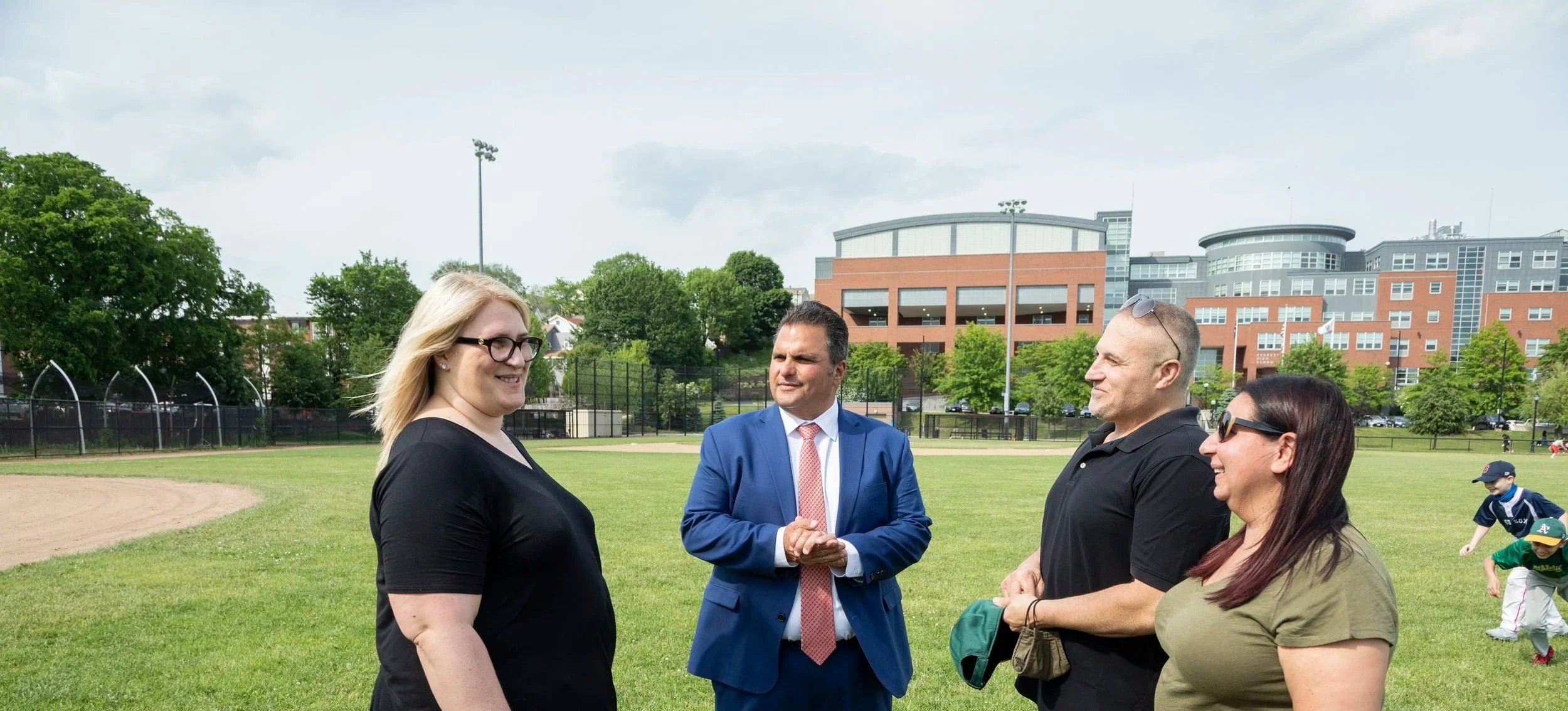
Accomplishments
Sections
Economic Development Programs and Designations
Community Development Block Grants (CDBG):
Through the efforts of Mayor DeMaria’s administration, $1.65M was awarded in 2023, funding affordable housing at 25 Garvey St., housing rehabilitation grants, social services, and program administration.
$925K was awarded in 2024 to support food security, afterschool programs, elder services, homelessness prevention, housing, and ESOL classes.
In 2025, Everett will become a direct recipient of CDBG funds, increasing funding and streamlining the process.
To continue receiving CDBG funding each year, the City conducts extensive administrative and compliance work, an effort led by the administration to ensure Everett remains eligible and maximizes available federal support.
Massachusetts Gaming Commission Community Mitigation Funds (CMF):
$1.3M awarded in 2023 for fire and police training/equipment, bike trail expansions, Boston Harbor Walk design, and community asset studies.
Requested $3.5M in 2024; received $2.4M for climate-resilient park, traffic and pedestrian improvements, public safety, and addiction assistance programs.
Applied for $2.7M in 2025 to fund public safety, pedestrian improvements in Everett Square, grant matches, and design for the Assembly Row pedestrian bridge.
These funds are not guaranteed annually; through the proactive efforts of the Administration, the City applies each year to secure competitive awards that support public safety, infrastructure, and quality-of-life improvements.
Everett Citizen’s Foundation:
As a result of Mayor DeMaria’s negotiations to bring Encore Boston Harbor to Everett, the Everett Citizens Foundation was created and has donated $250K+ annually since 2019, totaling over $1.6M in grants to local nonprofits, sports leagues, faith groups, and small businesses.
Revitalization of City Land & Housing Production
Everett leads regional housing production, ranking 4th among Metropolitan Mayors Coalition cities from 2015–2021 with 2,753 new units—surpassing larger cities like Quincy, Newton, Chelsea, Malden, and Brookline.
In 2022 alone, Everett permitted 2,874 housing units, including 363 affordable units; the Boston Globe called Everett a “Housing Boomtown” in Feb 2024.
This increased housing supply helps alleviate pressure on affordability in a high-demand market, making it easier for Everett residents to find housing that meets their needs.
Everett has the highest number of housing units actively under construction in Massachusetts, per a JLL study.
Many projects transform underutilized, contaminated land into valuable community assets.
The City is finalizing a comprehensive Zoning Re-Codification to align development with Everett’s vision, currently awaiting City Council approval expected by fiscal year-end.
Under the Mayor’s leadership, new development projects are required to include affordable units, ensuring that housing growth is inclusive and benefits a broad range of residents.
Many of these new units are located near public transit and are designed with limited parking, helping to reduce additional traffic and preserve parking availability in existing neighborhoods.
Commercial Projects
Exxon Site
96.5-acre industrial parcel, now re-zoned as Everett Docklands Innovation District.
Master Plan submitted for 5 million sq ft development, 10,300 linear feet new streets, 15 acres open space including 5 acres public parks.
$3 billion investment, ~7,000 permanent jobs projected, major industrial land revitalization.
Constellation Site
Two large waterfront parcels, former generating stations.
Station 1-7 proposed a 25,000-seat professional stadium, plus a 4-acre public waterfront park and Riverwalk extension.
Legislative approval to remove Designated Port Area restrictions secured.
Next step: Community Benefit Agreements with Everett and Boston.
$600 million private investment, promises of remediation, waterfront access, workforce commitments, and revitalized Broadway entrance corridor.
Regional Projects and Partnerships
North Suburban Consortium (NSC)
We comprise 8 communities that jointly apply for and administer federal HOME and HOME-ARP funds.
Invests heavily in affordable apartments and homeownership opportunities across member communities.
Provides funding for down payment assistance, tenant-based rental aid, and supports Community Housing Development Organizations’ operations.
Offers supportive services aimed at vulnerable populations within the consortium.
Island End River Flood Resiliency Project
Joint effort by Everett and Chelsea to construct a 4,460-foot storm surge barrier and a 3,000 square-foot underground storm surge control facility.
Includes about 18,000 square feet of nature-based riverfront improvements and wetland and public access enhancements.
Protects over 5,000 residents, critical infrastructure (transportation, healthcare, food distribution), and a public high school in low-lying, environmentally justice communities.
Projected to defend areas expected to fall within the 100-year floodplain by 2070 while maintaining access for emergency and private operations.
Although anticipated federal BRIC grant funding was halted earlier this year, the administration’s climate resiliency work continues in partnership with Chelsea. These efforts, focused on protecting critical infrastructure and future generations from the threat of flooding, remain ready for activation when funding resumes.
Harvard Kennedy School Partnership
The City has collaborated with HKS for three consecutive semesters on projects including Exxon land use, transportation demand management, and flood impact analysis in Island End.
Projects involve comprehensive community engagement and multidisciplinary research.
Another semester-long project is planned for September.
The City recently presented at HKS’s 20th anniversary symposium, highlighting ongoing academic partnership.
